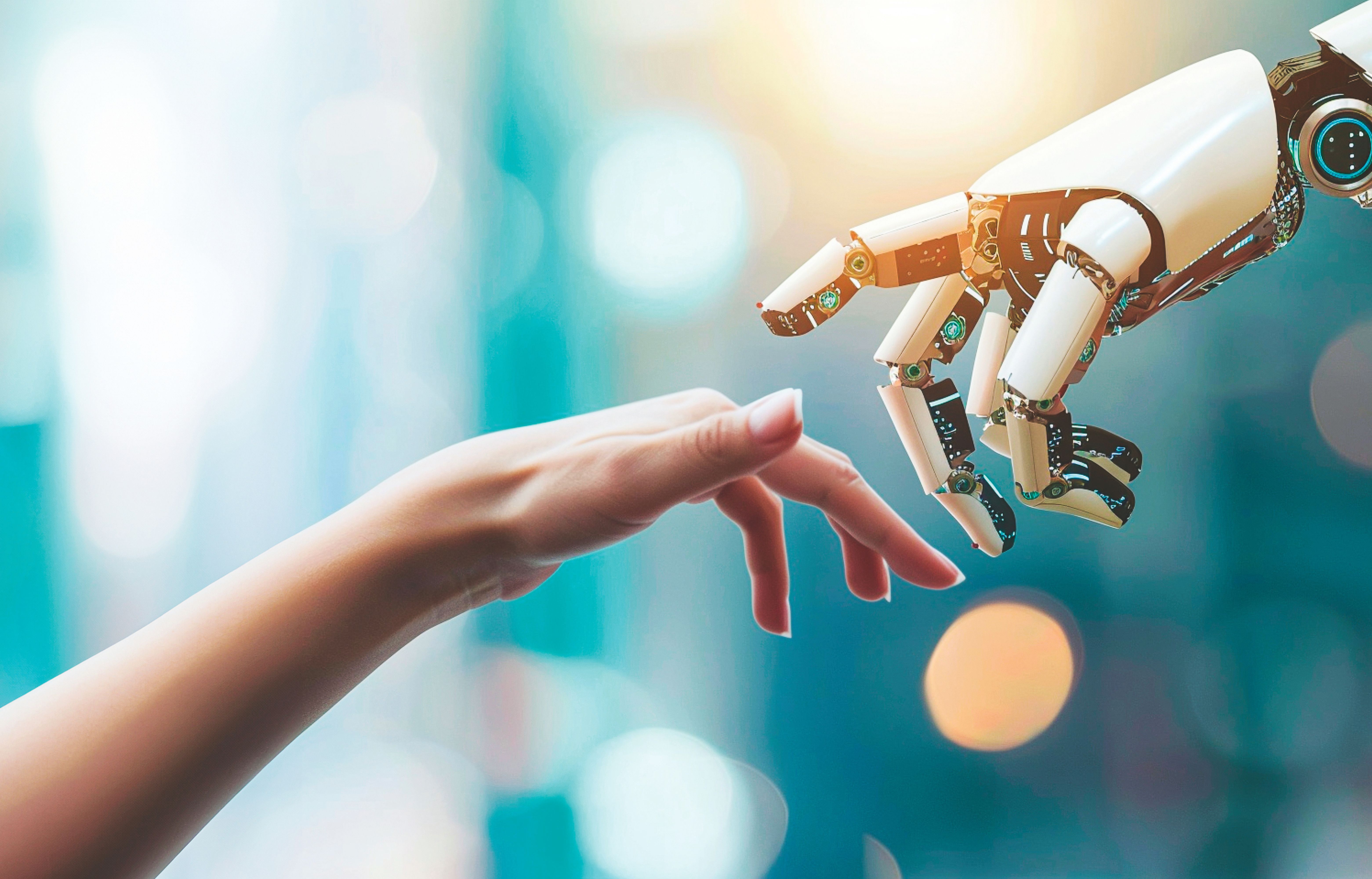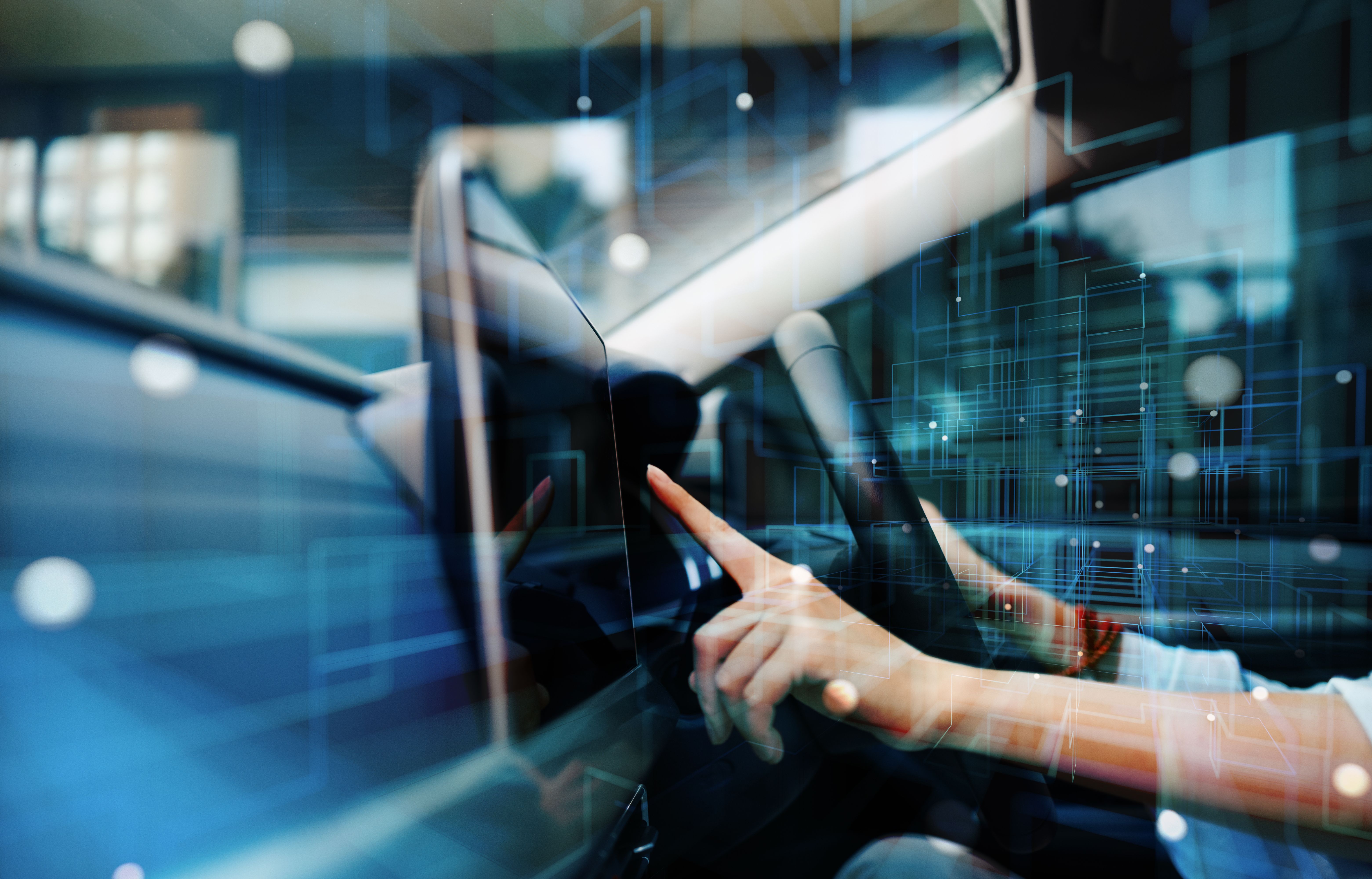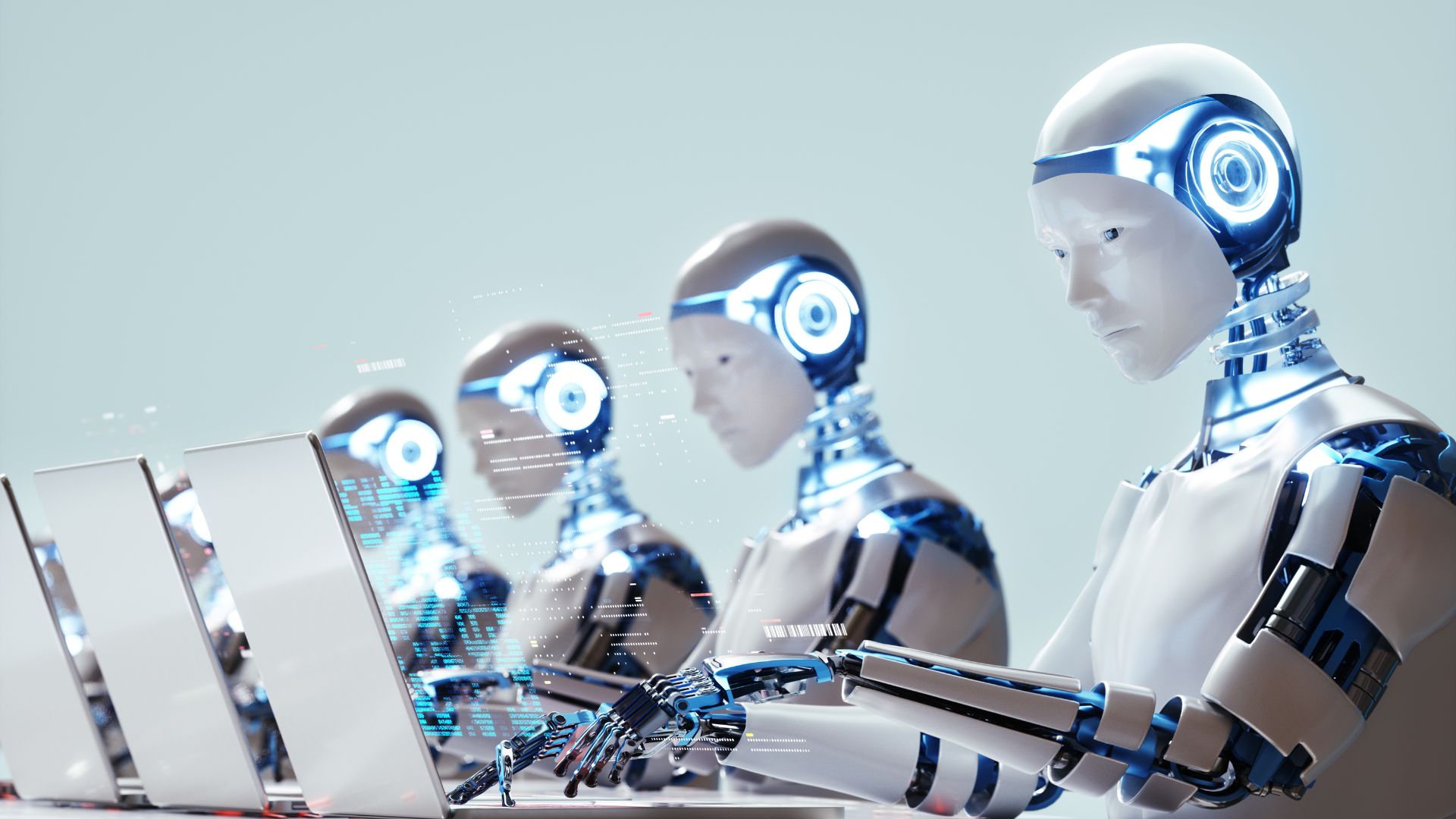Is AI to be trusted? We investigate the uses, pros and cons of artificial intelligence
AI is a topic on everybody's lips – even becoming a plot line in the latest series of Jennifer Aniston and Reese Witherspoon drama The Morning Show – but what exactly is it and should we be wary or embrace the tech?


Sign up to our free daily email for the latest royal and entertainment news, interesting opinion, expert advice on styling and beauty trends, and no-nonsense guides to the health and wellness questions you want answered.
You are now subscribed
Your newsletter sign-up was successful
Want to add more newsletters?

Daily (Mon-Sun)
woman&home Daily
Get all the latest beauty, fashion, home, health and wellbeing advice and trends, plus all the latest celebrity news and more.

Monthly
woman&home Royal Report
Get all the latest news from the Palace, including in-depth analysis, the best in royal fashion, and upcoming events from our royal experts.

Monthly
woman&home Book Club
Foster your love of reading with our all-new online book club, filled with editor picks, author insights and much more.

Monthly
woman&home Cosmic Report
Astrologer Kirsty Gallagher explores key astrological transits and themes, meditations, practices and crystals to help navigate the weeks ahead.
Talking robots and self-driving cars used to only appear in Hollywood blockbusters. But the pace of development in artificial intelligence (AI) means such futuristic notions are no longer merely science fiction.
With its rapid rise, it's no wonder that series 4 of The Morning Show tackles the topic of AI, with new CEO Stella (played by Greta Lee) and president of the board Celine (Marion Cottilard) introducing a deepfaked team of news anchors that can speak any language. When this AI-generated tech seems to cause a major problem for Alex (Jennifer Aniston), it makes the team question whether we can trust what we 'see'.
It's a gripping premise for a drama, and has certainly captured our imaginations, but what actually is AI and should we be adopting or avoiding this technology in real life?
Watch the gripping drama play out in The Morning Show season 4 on Apple TV+ by signing up for a 7-day no obligation free trial today.
Artificial intelligence is the catch-all name given to computer programmes that can learn, reason and act like humans, performing tasks that typically require human intelligence, such as speech recognition, answering questions, interpreting data and creating visuals.
AI is already integrated seamlessly into our daily lives, perhaps more than you even realise: more than half of UK homes owns a smart speaker, customer service chatbots and personalised product recommendations are widely used by online retailers, and Google serves AI-generated answers to commonly searched questions and Gemini-powered summaries at the top of your emails.
Then there are generative AI tools such as ChatGPT, which create new content in text, music, images or video based on user prompts. Over 18 million people, or 36% of the population aged 16 to 75 in the UK, have used these. Of the seven million using it for work, 74% report an increase in productivity.
But it’s this ability of AI to mimic humans that makes many concerned. What if AI makes our jobs redundant? Will robots take control of systems they shouldn’t? Can we trust AI to make decisions that materially impact our lives?
Sign up to our free daily email for the latest royal and entertainment news, interesting opinion, expert advice on styling and beauty trends, and no-nonsense guides to the health and wellness questions you want answered.
AI consultant Dr Catherine Breslin has over two decades of experience in machine learning, conversational AI, AI strategy and more, and a PhD from the University of Cambridge. She says AI will soon be impossible to avoid.
"It is everywhere already – from the simple photo recognition software on our phones to movie recommendations on Netflix, to hospitals where it’s helping to analyse X-rays," Dr Breslin says.
"It can perform so many tasks and, with new developments all the time, it looks likely to play a significant role in all our futures."
As with any new technology, there will be risks if it is used inappropriately, but the potential benefits of responsible and ethical AI adoption are huge.
Pros and cons of AI

There are mind-blowing numbers of AI-driven apps launching for all parts of our lives. Virtual assistants and smart-home devices save time and boost productivity, while automated scheduling tools can streamline tedious tasks.
If you’re one of the 87% of UK adults who use online banking, it’s likely you have already benefited significantly from AI. Transaction-monitoring systems that analyse spending patterns now alert us swiftly to any irregularities or potentially fraudulent activities.
In healthcare, AI’s rapid processing of staggering amounts of data is speeding up analysis of medical results and drug development, freeing up doctors to deliver more personalised care and research scientists to make faster progress.
AI-powered wearable devices are also transforming the lives of people with chronic health conditions, as they are able to monitor their symptoms 24/7.
For instance, those who have type 1 diabetes can wear a continuous glucose monitor to track their blood sugar levels in real time, enabling their insulin pump to adjust delivery automatically.
AI is also breaking new ground in robotic-assisted surgery, which is used increasingly in areas such as urology, gynaecology and cardiac surgery.
A downside, however, of AI systems being filled with so much sensitive information is the risk of data breaches.
And, of course, AI can also make mistakes, so it’s vital that all AI-generated facts are always checked.
More sinisterly, AI tools can even be used by untrustworthy people to spread disinformation and create deepfakes; where a realistic-looking video, photo or audio is created that simulates a real person. The Morning Show imagines some of the harm this could cause, and its stars Jennifer Aniston and Reese Witherspoon both have real-world experience of their images being used to create deepfakes to try to con fans out of cash.
Even supporters express concern at humans becoming over-reliant on AI, and what the consequences could be if systems fail and humans are not present or not trained to step in.
Ultimately, "AI is not inherently good nor evil, it’s a tool," says Dr Breslin. "Its impact depends on how we use it, so we need to work out how to use it well."
AI for everyday life

Artificial intelligence has lots of everyday uses, helping us do everything from compose emails to learn new languages. Here are just a few of the ways it can help us from day to day.
- Writing: Generative AI tools like ChatGPT use written prompts to create polished drafts of everything from CVs and emails to party invites and quiz questions.
- Meal prep: SuperCook, an AI-powered recipe app, helps minimise food waste and save time by recommending meals based on your fridge and cupboard contents.
- Self-care: Apps such as Calm and Headspace can build personalised plans to help reduce stress with tailored meditation and mindfulness tools.
- Personal development and tutoring: AI-powered platforms such as Duolingo or Tutor AI can help with language learning, exam prep and skill building.
- Traffic dodging: Waze and Google Maps provide real-time information on traffic and routes.
- Interior design: Apps such as Spacely AI and RoomGPT use AI to create realistic interior design options and makeovers.
Future developments

Fast forward a few years, and AI is set to transform our world even further.
While it may sound rather Knight Rider, self-driving cars are also already a reality. American company Waymo is testing driverless taxis in cities such as San Francisco and Phoenix. It’s predicted that fully autonomous vehicles will launch within the next decade.
In the future, AI assistants won’t just respond to voice commands; they’ll handle bookings for restaurants, theatre tickets, even doctor’s appointments, mimicking human conversation so naturally that you won’t be able to tell the difference.
Smart homes also look set to become mainstream, with experts forecasting 15.1 million in the UK by 2027. Imagine tech that can adjust lighting, manage temperature, put the washing on when electricity is cheapest and even suggest meals based on what’s in the fridge.
Will AI take my job?

One of the most common worries when it comes to this technology is the impact on human workers. A 2024 report from the Institute for Public Policy Research on the impact the current wave of AI could have on jobs gave two potential forecasts – a worst-case scenario of 1.5 million jobs lost and no impact on the economy, alongside a best-case scenario of no job losses and GDP growth of 4%. So, what’s most likely?
The truth is, no one knows, as the future in such a rapidly changing field is almost impossible to predict.
Dr Breslin suggests we learn more about AI. "Figure out which parts of your job might be done by computers or where AI tools might help you," she says. "Think about focusing your efforts and training on areas in which you are well qualified but will not be as impacted by AI."
Like the industrial revolution, the AI era looks set to make some jobs obsolete but also to generate new roles. The tool is already automating certain tasks, like data analysis, but it’s also driving demand for AI specialists and data checkers. The key is learning how to work alongside AI rather than being replaced by it.
My own experience of AI’s limitations persuades me there will always be a need for the human touch. To the question ‘Where’s my order?’ a chatbot replied recently, ‘Do any of us truly know where we are in life?’ Amusing, if not very helpful. It took a conversation with a real person to locate my missing-in-transit gym gear.
So while AI is improving, human oversight remains essential.
So can we trust AI?
While there are valid concerns, the potential benefits do outweigh the risks if we use AI responsibly.
The key is to stay informed, adapt to changes, and experiment with the tools currently out there so as not to be left behind.
Will taxi drivers soon be a thing of the past? Will AI agents really relieve us from hours of dull home and life admin? Only one thing seems certain: AI is here to stay.

This article first appeared in the June 2025 issue of woman&home magazine. Subscribe to the magazine for £6 for 6 issues.
Ellie juggles being Mum to a chaotic blended family of seven with working as a lifestyle and travel writer. With a Masters in Psychology, Ellie is passionate about delving into what makes people tick and bringing to life their stories. Using the real-life experience of her own ‘modern family’ and their many adventures alongside her diverse range of personal interests, she’s recently covered topics as varied as the Taylor Swift phenomena, helping kids through divorce, Living Funerals and South African Safaris. Ellie contributes to publications such as Woman&Home, Woman, Woman’s Weekly, Good Housekeeping, The Times, Red Magazine, Travel Africa and Family Traveller.
You must confirm your public display name before commenting
Please logout and then login again, you will then be prompted to enter your display name.


